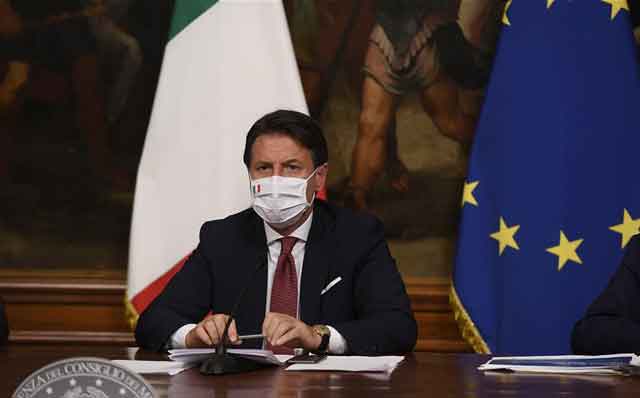
Kampala, Uganda | XINHUA | Italy’s cabinet on Friday gave green light to a new decree containing new supportive measures worth 25 billion euros (29.4 billion U.S. dollars) to address the COVID-19 emergency and encourage economic recovery.
The decision on the extra spending had been taken by Prime Minister Giuseppe Conte’s cabinet in a previous meeting on July 23 and authorized by parliament on July 29.
The fresh resources represented the third economic provision aimed at supporting the economy, which has been severely hit by the lockdown measures imposed to curb the coronavirus.
A first 25-billion-euro decree had been passed in March, and a second worth 55 billion euros in May.
“The decree aims at supporting workers, businesses, and local institutions overall,” Conte told a press conference after the meeting.
“The latest data by ISTAT (the National Institute of Statistics) showed consumption has partially resumed in June already, and this was possible also thanks to the previous measures delivered,” he explained.
NEW STIMULUS
The new stimulus measures contained in the 103-article decree include an 18-week extension of public funding for workers put in temporary redundancy schemes. Companies accessing the schemes, however, will have to put on hold any cut to their workforce in the same period.
In addition, employers calling back workers, who were put on redundancy in the previous months due to the COVID-19 crisis, will be allowed a 100 percent cut of social contribution payments for four months.
A specific measure to help businesses and employment in the less-developed southern regions was delivered, providing for a 30 percent cut of social contribution payments to companies for all of their employees (and not just for new hiring) starting from Oct. 1.
Among other provisions, the package included extra funding for public schools reopening in September under anti-COVID safety rules and rescheduling of fiscal and social contribution payments for workers across a period of two years.
A specific non-repayable fund was set aside “to support businesses based in the historic centers of 29 cities across Italy that are particularly devoted to international tourism,” Conte explained in the press conference, not specifying the total amount of the fund.
A 400-euro ’emergency income’ introduced in March for supporting low-income households hit by the coronavirus emergency was also renewed until Oct. 15.
CONTAINMENT MEASURE EXTENDED
With the new decree, some containment measures approved in the previous months to curb the spread of the coronavirus were extended up to Sept. 7.
Wearing face masks will remain mandatory in all indoor public spaces — for all but children under 6 years of age — as well as maintaining the one-meter interpersonal safety distance, and avoiding public gatherings.
Any person with a body temperature higher than 37.5 degrees Celsius will be required to remain at home, and avoid any working or leisure activity outdoors.
The 25-billion-euro deficit hike implemented with the decree will now push Italy’s budget deficit to 11.9 percent of gross domestic product (GDP) this year and public debt to 157.6 percent of GDP, according to estimates provided by officials of Bank of Italy in late July.
The Italian economy — the third-largest in the 19-member eurozone — was likely to contract by around 9.5 percent in 2020, and rebound by 4.8 percent in 2021 and by 2.4 percent in 2022, according to the same sources.
A state of emergency for the COVID-19 pandemic declared by the Italian government on Jan. 31, and originally due to expire on July 31, was recently extended until Oct. 15. (1 euro = 1.18 U.S. dollars)
****
XINHUA
 The Independent Uganda: You get the Truth we Pay the Price
The Independent Uganda: You get the Truth we Pay the Price



